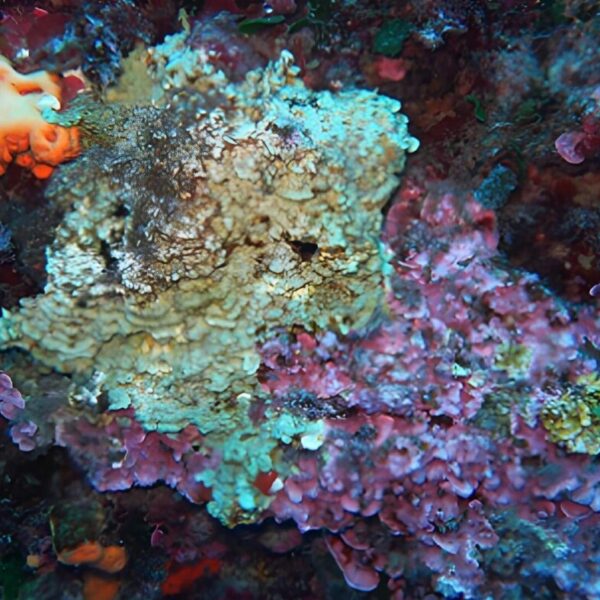The Greek islands are a magnet for millions of tourists and mainly feature great geological varieties conducive to a diverse and rich fauna and flora. However, as in Tunisia (see the article from January 26 on this topic), the effects of the climate crisis are becoming visible on many islands.
The Mediterranean has been abnormally warm for long periods in recent years. “This is the case, for example, in the Gulf of Kalloni in Lesbos (northeast Aegean Sea), over the past two years. This has created a suffocation situation for many marine organisms. In other words, there have been mass die-offs of oysters, mollusks, as well as discoloration phenomena and disease transmission to sponges, gorgonians, corals, and coralline algae”, explains Drosos Koutsoumbas, a professor of marine biology in the Department of Oceanography and Marine Sciences at the University of the Aegean.
These are fundamental elements of the marine ecosystem that contribute, among other things, to maintaining water purity, reducing erosion, and protecting coastlines from waves, as well as enhancing the resilience of coral reefs, which are threatened.
Tropicalization of the Mediterranean
What is happening in Lesbos is a consequence of this phenomenon that scientists call the tropicalization of the Mediterranean. “In recent years, the Mediterranean has experienced an increase of about 2 degrees Celsius in its waters. This gives it tropical characteristics and thus facilitates the arrival and establishment of tropical species that come through the Suez Canal. Some of them are aggressive and compete with local species, leading to a degradation of biodiversity”, notes Drosos Koutsoumbas.
Some can be dangerous. One of them, the sunfish (Lagocephalus sceleratus) due to the tetrodotoxin it contains, can cause the death of anyone who consumes it, while with its sharp teeth, it destroys fishing nets and lines to consume the catches of fishermen. Another invasive species, the jellyfish Rhopilema nomadica, which particularly colonizes the Levant Sea coasts via the Suez Canal, appears in large concentrations with direct consequences on maritime tourism, discouraging bathers and diving enthusiasts. The presence of jellyfish also impacts the fishing sector by damaging or obstructing nets.
Other exotic fish are found in Greek waters. This is the case for the family of Siganus (or rabbitfish) and salemas (Sarpa salpa) in the Aegean archipelago. These are herbivorous fish that massively consume seagrasses of posidonia and other microalgae, leading to the destruction of ecosystems, reduction of biodiversity, and disruption of food chains.
Before 2100, many Greek beaches will have disappeared
Another challenge that the Greek islands face is the rising sea level. This phenomenon causes beach erosion and reduces their perimeter, creating problems for wildlife by destroying their habitats, as well as for tourism.
According to Antonis Velegrakis, a professor of marine geology in the Department of Maritime Sciences at the University of the Aegean, by 2100, a very large number of Greek beaches will have disappeared. “According to our estimates, many will lose up to 50% of their width and will eventually disappear completely”. Intense weather phenomena, uncontrolled construction of hotel infrastructures near the coasts, and the absence of dunes, trees, and natural protection are some of the reasons for this vulnerability. A characteristic example is Eressos beach in Lesbos, one of the most popular on the island.
“The case of Eressos is the perfect example. First, there is the rising sea level combined with stronger waves caused by climate change. Then, human action with poorly designed construction works on the coast, such as a seawall. These structures have altered how the beach “reacted” naturally to the waves, making it more vulnerable to erosion. Finally, the reduction of the natural flow of sand and materials to the beach was caused by the construction of the Chalandras dam in 1999, halving the amount of sediments arriving from the land. All these upheavals have led to the catastrophic changes experienced by this beach in recent years”, explains Antonis Velegrakis. The challenges for the Greek islands, experts warn, will intensify over time. Public awareness is of utmost importance because if citizens do not grasp the problem, they will not be able to participate in the decision-making process. Nor demand the establishment of stricter regulations for the protection of coastal areas. It is therefore necessary to inform and act quickly to save as much as we can of our natural wealth.

Photo of the Day: Discoloration of red algae (Rhodophycus Mesophyllum) in the Greek seas ©Koutsoympas D.
